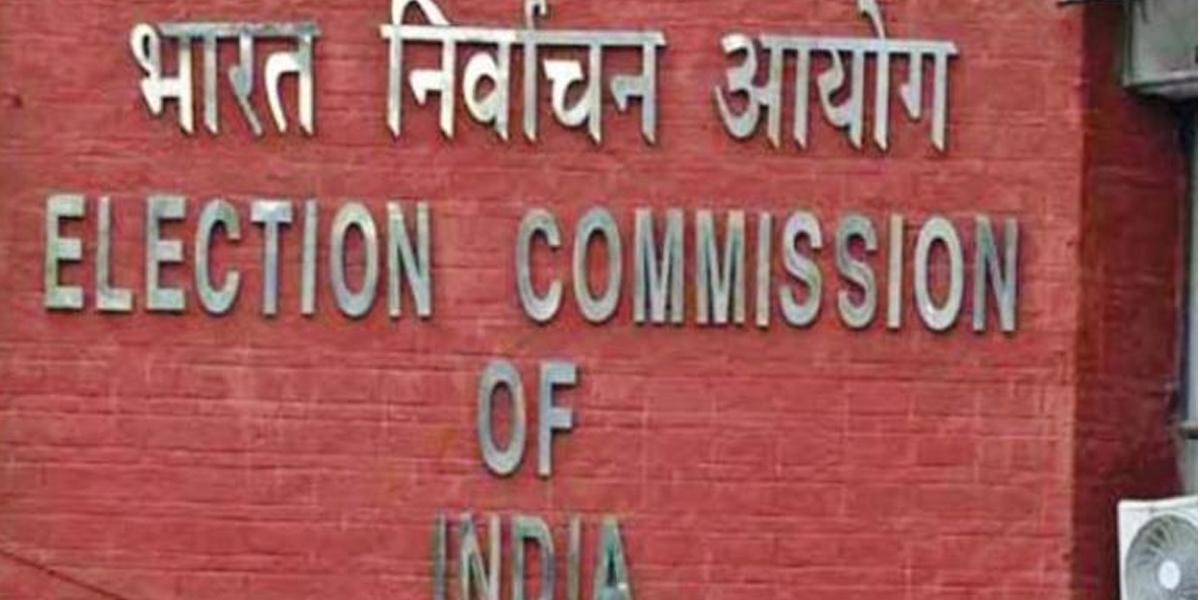Live
- Meaningful dialogue a priceless jewel of democracy: Jagdeep Dhankhar
- Tim Southee matches Chris Gayle's six-hitting record in his farewell Test
- AP Mnister Ponguru Narayana Inspects Highway Connectivity Roads to Amaravati
- Reduced inflow: Water levels in Chembarambakkam, Poondi reservoirs drop
- Slapgate haunts CM as Rohini slams Nitish following Patna DM’s action against BPSC candidate
- Amazon Music India Unveils 'Best Of 2024’ Celebrating Top Hits, Artists & Podcasts
- Kejriwal writes to HM Shah on law and order, seeks urgent meeting
- Big e-commerce firms to adopt Safety Pledge on National Consumer Day
- Cop ends life over torture by wife, father-in-law in Bengaluru
- Indian Constitution longest and most beautiful, Kiren Rijiju lauds its inclusive character
Just In

The Election Commission will make a fresh push for electoral reforms with the government, including making filing of false declaration a ground for disqualification and putting a cap on expenditure by candidates in legislative council polls, in the coming days
NEW DELHI: The Election Commission will make a fresh push for electoral reforms with the government, including making filing of false declaration a ground for disqualification and putting a cap on expenditure by candidates in legislative council polls, in the coming days.
According to highly-placed sources in the poll panel, the Election Commission top brass, at the planned meeting with Legislative Secretary G Narayana Raju after the end of the winter session of Parliament, will also ask the government to make bribery during poll period a cognisable offence.
The winter session of Parliament will end on January 8.
While the Law Ministry is the administrative ministry for the Election Commission, the Legislative Department is the nodal unit for issues related to the poll panel.
The sources said, the Commission would also ask the ministry to take a call on its demand to extend constitutional protection to the two election commissioners on the lines of the Chief Election Commissioner.
The President appoints the Chief Election Commissioner and Election Commissioners after the Law Ministry initiates the file for their appointment.
A Chief Election Commissioner can be removed from the office only through impeachment by Parliament. The President can remove the Election Commissions based on the recommendation of the CEC.
In its report on electoral reforms submitted in March, 2015, the Law Commission had proposed extending constitutional protection to the two Election Commissions.
The Election Commission had been pushing to extend constitutional protection to the election commissioners.
Another proposal that the Election Commission would press for is making electoral law gender neutral for armed forces personnel.
As of now, an armyman's wife is entitled to be enrolled as a service voter, but a woman army officer's husband is not, according to the provisions in the electoral law.
But a bill pending before the Rajya Sabha proposes to replace the term 'wife' with 'spouse', thus making the provision gender neutral.
Members of the armed forces, central armed police forces, personnel of state police forces posted outside their state and employees of the Centre posted outside India are eligible to be enrolled as service voters.
"Much depends on Parliament. The bill has been passed by the Lok Sabha... It is a major electoral reform for service voters ahead of the Lok Sabha polls... We want government to get it passed at the earliest," an Election Commission official said.
Referring to the issue of filing false declaration, the sources said, as of now, it attracts a six months' jail term. But the Election Commission wants to make it into an "electoral offence", they said.
Conviction in an electoral offence is a ground for disqualification. "Jail term of six months does not instil fear. Disqualification would," another official explained.
As of now, candidates contesting legislative council elections don't have a bar on campaigning expenses, which, the Election Commission wants to put a cap on.
The expenditure should be half of what is allowed for candidates contesting assembly polls. Every state has a different expenditure limit based on its size, number of voters and assembly seats.
As of today, bribery in elections is a non-cognisable offence where an investigation cannot take place without a magistrate's permission. The Election Commission wants to make it a cognizable offence and bring in the category of "serious" crimes like murder, dowry, death, and rape.

© 2024 Hyderabad Media House Limited/The Hans India. All rights reserved. Powered by hocalwire.com







